Bolivia's Morales resigns after losing backing of security forces
Member of the Aymara indigenous community & a coca farmer, Morales became Bolivia's first indigenous president in 2006
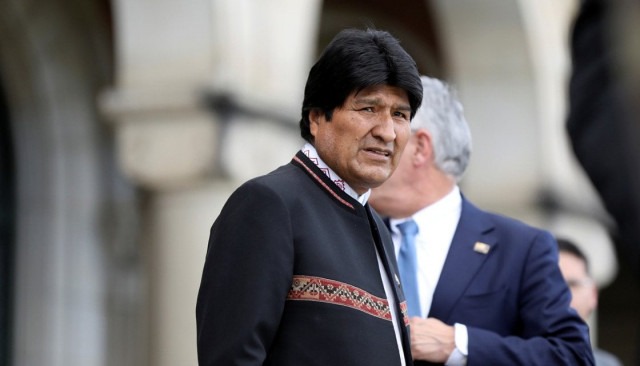
"I resign my post as president," the leftist Morales said in a televised address, capping a day of fast-moving events in which many ministers and senior officials quit as support for Latin America's longest-serving president crumbled and creating a temporary leadership vacuum in the country.
Quiero que sepa el pueblo boliviano, no tengo por qué escapar, que prueben si estoy robando algo. Si dicen que no hemos trabajado, vean las miles de obras construidas gracias al crecimiento económico. Los humildes, los pobres que amamos la Patria vamos a continuar con esta lucha.
— Evo Morales Ayma (@evoespueblo) November 10, 2019
The streets of La Paz immediately exploded in celebration, with jubilant Bolivians setting off firecrackers and waving the country's red, yellow and green flag.
The main opposition candidate in the election, former president Carlos Mesa, said Bolivians "have taught the world a lesson. Tomorrow Bolivia will be a new country."
In the confusion, a group of 20 lawmakers and government officials took refuge at the Mexican ambassador's residence, and Mexico announced it was offering asylum to Morales as well.
Morales later tweeted that there was a warrant for his arrest, but police commander Vladimir Yuri Calderon told local Unitel television that was not the case.
Denunciamos y condenamos ante la comunidad internacional y pueblo boliviano que el plan de golpe fascista ejecuta actos violentos con grupos irregulares que incendiaron la casa de gobernadores de Chuquisaca y Oruro y de mi hermana en esa ciudad. Preservemos la paz y la democracia
— Evo Morales Ayma (@evoespueblo) November 10, 2019
Morales also wrote that "violent groups" had attacked his home.
Police announced on Sunday night that they had arrested Maria Eugenia Choque, the head of the country's electoral court, an institution slammed by the opposition as biased.
Morales, a member of the Aymara indigenous community, is a former coca farmer who became Bolivia's first indigenous president in 2006.
He defended his legacy Sunday, which includes landmark gains against hunger and poverty and tripling the country's economy during his nearly 14 years in office. He gained a controversial fourth term when he was declared the winner of the October 20 presidential election by a narrow margin.
But the opposition said there was fraud in the vote count and three weeks of street protests ensued, during which three people died and hundreds were injured.
At least two dead in Bolivia post-election clashes: defence minister
The Organisation of American States carried out an audit of the election and on Sunday reported irregularities in just about every aspect that it examined: the technology used, the chain of custody of ballots, the integrity of the count, and statistical projections.
As chanting Bolivians kept up demonstrations in the street, the 60-year-old Morales called new elections, but this was not enough to calm the uproar. The commanders of the armed forces and the police joined the calls for the president's resignation.
Armed Forces chief Williams Kaliman told reporters he was asking Morales "to resign his presidential mandate to allow for pacification and the maintaining of stability, for the good of our Bolivia."
Cracks had already appeared inside his own government, with the head of the lower house of parliament and the ministers of mines and hydrocarbons announcing their resignations.
Those were followed by a raft of other ministerial resignations after Morales' announcement and raised the question of who was in charge, given that vice president Alvaro Garcia Linera also resigned.
Under the constitution, power then passes to the president of the Senate and the speaker of the lower house of Congress in that order. But they have resigned too.
Constitutional lawyer Williams Bascope, close to the opposition, said lawmakers "will have to convene immediately to elect their presidents."
A new Senate leader would thus be tasked with appointing a consensus cabinet and steering the country through to elections and a transition period.
To make the announcement that he was stepping down, Morales traveled by plane to the coca-growing Chimore region of central Bolivia, the cradle of his career in politics. It was there in the 1980s that he made his name as a combative union leader defending farmers who grow coca, which in the Bolivian countryside is used for medicinal and other purposes.
Morales insisted he was not running away from his responsibilities.
"I do not have to escape. I have not stolen anything," he said.
"My sin is being indigenous. To be a coca grower."
"Life does not end here. The struggle continues," he added. "I am resigning so that they (the opposition leaders) do not continue to kick our brothers," Morales said, referring to pro-government protesters who repeatedly clashed with opposition demonstrators.
‘US hegemony has come to an end’: Bolivian foreign minister
With the situation in Bolivia unclear following the fast-moving events, regional heavyweight Colombia called for an urgent meeting of the OAS permanent council to look for solutions.
In the immediate aftermath of the shock announcement, Latin American leftist allies rallied to denounce a coup against one of their own.
Venezuela's President Nicolas Maduro called for a mobilization of political and social movements "to demand the preservation of the life of the Bolivian native peoples, victims of racism."
Hooded demonstrators overran Venezuela's embassy in La Paz on Sunday, the country's ambassador, Crisbeylee Gonzalez, told state news agency ABI.
Cuba's Foreign Minister Bruno Rodriguez described Morales as "a protagonist and a symbol of the rights of the indigenous peoples of our Americas."
And Brazil's Lula insisted "my friend Morales" had been removed in a coup, evidence of "an economic elite in Latin America that did not know how to share democracy with poor people."
Argentina's Fernandez said a coup had been carried out "by the joint actions of violent civilians, police personnel who confined themselves to their barracks, and the passivity of the army."

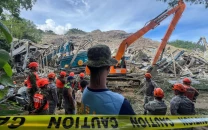
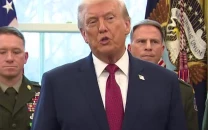
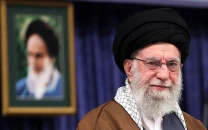
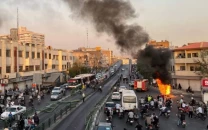
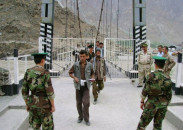
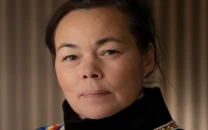












COMMENTS
Comments are moderated and generally will be posted if they are on-topic and not abusive.
For more information, please see our Comments FAQ